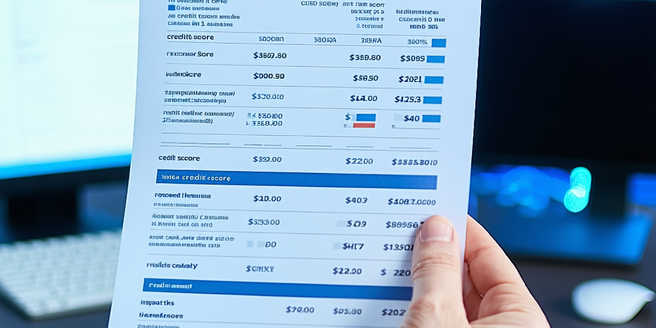
Understanding the Importance of Credit Repair
| Aspect | Impact | Action |
| Credit Score | Determines Loan Amount | Improve Payment History |
| Interest Rates | Lower Rates on Good Credit | Reduce Outstanding Debt |
| Loan Approval | Higher Approval Chances | Monitor Credit Reports |
| Loan Terms | Better Terms Offered | Negotiate Terms |
| Financial Health | Overall Financial Well-being | Seek Financial Advice |
| Stress Levels | Reduce Financial Stress | Plan and Execute |
Assessing Your Current Credit Situation
Taking the first step towards credit repair involves thoroughly assessing your current credit situation. Begin by obtaining your credit report from major credit bureaus. Carefully review each section, noting down any discrepancies or areas that need improvement. Understanding your credit score and its influencing factors is crucial. Analyze the components, such as payment history and credit utilization, which impact your score. Consult resources or professionals to gain deeper insights into each element of your credit profile. Identify debts and collections that might be pulling your score down. This comprehensive understanding will form the foundation of your credit repair strategy. Moreover, it enables you to set realistic goals and timelines for achieving your target credit score before you apply for a loan.
Identifying Common Credit Report Errors
Credit report errors are more common than many realize and can negatively affect your credit score. Start by identifying inaccuracies such as incorrect personal information, outdated account balances, and unauthorized accounts. Look for duplicate entries or payments marked as late when they were timely. It’s important to regularly check your credit report for any inconsistencies. Such errors, if unnoticed, can hinder your credit repair efforts and impact loan applications. Addressing them is crucial for an accurate reflection of your creditworthiness to lenders. Being thorough in your examination of the report will help streamline the credit dispute process. Ensuring your credit report is error-free paves the way for effective credit repair and improves your chances of favorable loan terms.
Steps to Dispute Credit Report Inaccuracies
To dispute inaccuracies in your credit report, start by contacting the credit bureau in writing. Clearly explain the errors, providing copies of documents supporting your claim. This documentation can include bank statements, communication with creditors, and identification. Consider organizing your documents in a logical order to facilitate the review process. Be concise yet comprehensive to ensure clarity. The bureau typically has 30 days to investigate and respond. If the claim is verified, corrections are made to your credit report. Further, notify the creditor responsible for the inaccurate information, as they play a vital role in the investigation. Persisting in this process can be labor-intensive but is essential for truly reflecting your creditworthiness. Successful disputes can lead to significant credit score improvements.
Building Positive Credit Habits
Establishing positive credit habits is essential for sustainable credit repair. Consistency in making timely payments holds significant weight in improving credit scores. Automate payments to avoid missing due dates and accumulating unnecessary penalties. Reduce credit card balances, aiming for a utilization rate below 30 percent of your credit limit. It’s also important to avoid opening too many new accounts at once, as this can negatively impact your credit score. Diversify your credit portfolio by responsibly taking on different types of credit, such as installment loans and credit cards. Maintain long-standing accounts, showing stability in managing credit over time. Regularly reviewing your credit report fosters proactive management and helps promptly address discrepancies. These cumulative efforts will steadily enhance your credit profile and boost your financial reputation.
The Role of Secured Credit Cards in Repair
Secured credit cards are instrumental in the credit repair journey, especially for those with a limited credit history. They require an upfront security deposit, which typically determines your credit limit. Regular and responsible use of these cards can gradually boost your credit score. It is important to understand the terms and conditions of such cards to avoid unexpected fees. Ensure to make payments in full each month to prevent interest accrual and demonstrate credit reliability. Over time, this can lead to eligibility for unsecured credit cards with favorable terms. A secured credit card also diversifies your credit portfolio, contributing positively to your credit report. It’s a stepping stone for those seeking to prove creditworthiness to potential lenders on their path to financial stability.
Debt Management Strategies for Better Credit
Effective debt management strategies are pivotal in enhancing credit scores and financial well-being. Start by prioritizing high-interest debts, setting up a structured repayment plan. Consolidating debts through loans with lower interest rates can also alleviate financial burden. Establish a budget that allocates a portion of your income towards paying off debts each month. It’s important to track your spending habits to ensure you are staying within your budget. Avoid accumulating further debt, which can detract from progress. Opt for the snowball or avalanche methods to tackle multiple debts strategically. Regularly assess and adjust your strategy as necessary, celebrating milestones to stay motivated. These efforts will significantly improve your credit score and ease the path to creditworthiness.
Utilizing Credit Counseling Services Effectively
Credit counseling services provide expert guidance in credit repair, offering tailored advice for individual situations. Counselors typically assist in creating budget plans, managing debt, and developing effective repayment strategies. It’s important to research and choose the right service for your unique needs. Selecting a reputable, non-profit credit counseling service ensures unbiased and ethical advice. With the right guidance, you can take charge of your financial future. Take advantage of the personalized action plan they offer to manage your finances. Regular sessions with a counselor can provide accountability and motivation, helping you track progress effectively. These services serve as a crucial resource for those overwhelmed by their credit situation, paving the way forward towards improved credit health and stability.
Timing Your Loan Application After Repair
Timing your loan application post-credit repair is crucial for securing the best terms. Allow time for recent repairs, such as dispute resolutions and debt repayments, to be reflected in your credit report. Monitor your credit score regularly, and once notable improvements are seen, consider applying for loans. Remember that some changes might take a few months to show their full effect on your credit score. Ensure that your credit report is up-to-date and free from inaccuracies. Strategic timing can lead to lower interest rates and increased loan approval chances. Being patient and meticulous in your credit repair process enhances your financial standing in the eyes of lenders. Ultimately, it’s about aligning your improved credit profile with loan acquisition for favorable outcomes.
Monitoring Credit Improvements Regularly
Constant vigilance in monitoring credit improvements is vital to maintaining a healthy credit score. Regularly reviewing your credit report enables timely detection of errors or fraudulent activities. It allows you to track progress achieved through credit repair efforts. Utilizing credit monitoring tools or services can provide peace of mind by offering an extra layer of protection. Use credit monitoring tools or services to receive alerts on significant changes to your credit file. Staying informed aids in making informed credit decisions and maintaining positive credit habits post-repair. Additionally, monitoring helps recognize areas requiring further attention, fine-tuning your credit strategy accordingly. This proactive approach ensures your financial profile remains robust and well-positioned for future credit endeavors.

